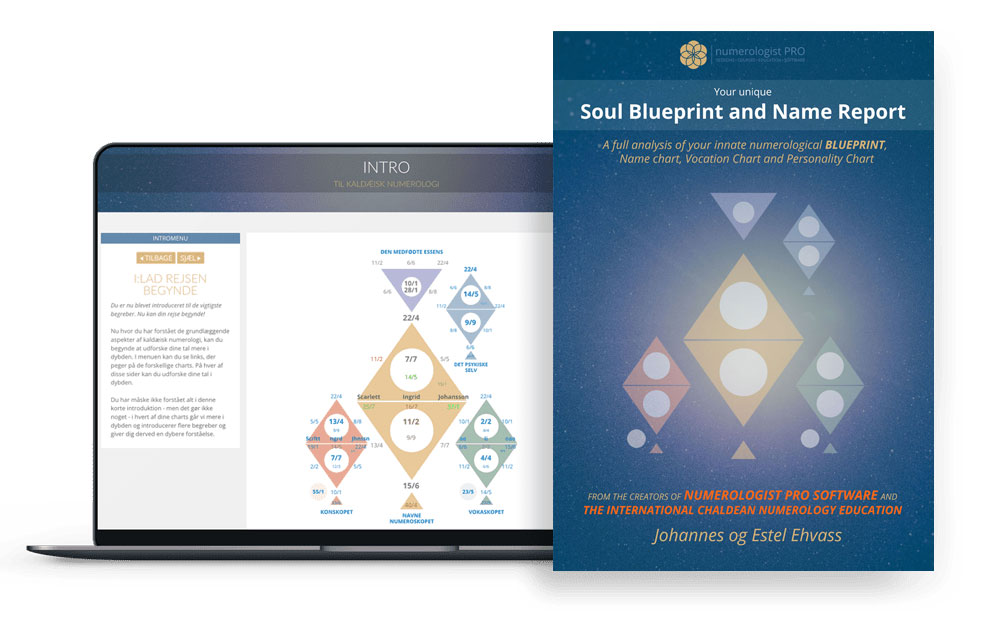Astrology in the 19th Century

Johannes Ehvass
Welcome, dear reader! The Enlightenment, often hailed as the Age of Reason, ushered in an era where logic and empirical evidence reigned supreme. As society championed scientific discovery and rational thought, astrology faced a unique challenge. Positioned at the intersection of ancient beliefs and emerging skepticism, the celestial practice found itself both critiqued and revisited. Yet, even amidst this intellectual revolution, the allure of the stars persisted, reflecting the enduring human desire to find meaning beyond the tangible. Join me as we explore this dynamic period, where astrology navigated the delicate balance between tradition and transformation.
Romanticism and its Influence on Astrological Revival
Introduction: A Century of Change
The 19th Century Landscape

The 19th century was a period of profound transformation, characterized by industrialization, political revolutions, and significant cultural shifts. Amidst these changes, there was a growing desire to return to nature, spirituality, and individual expression, setting the stage for the Romantic movement.
Reconnecting with the Mystical
As the rationality of the Enlightenment began to wane, a yearning for the mystical, the unknown, and the emotional took its place. This reconnection with the transcendental provided fertile ground for astrology’s resurgence.
Romanticism: The Heart Over the Head
The Essence of Romantic Thought
Romanticism emphasized emotion, intuition, and nature over reason and industrial progress. It championed individual experience and personal intuition as sources of truth, often delving into the realms of the supernatural and the unexplained.
Reviving the Ancient Arts
This inclination towards the mystical spurred an interest in ancient practices and beliefs, including astrology. People sought to find meaning in the stars, just as they did in art, poetry, and nature.
Astrology: A Tool for Self-Expression
Individualism and the Birth Chart
The birth chart, a personalized map of the heavens at the time of one’s birth, resonated with the Romantics. It was seen as a reflection of the individual soul, a tool to delve into one’s deepest desires, fears, and life path.
Romantic Arts and Celestial Imagery
Astrological symbols and celestial themes became prevalent in Romantic arts. Paintings, literature, and music of the era often showcased zodiac signs, planetary bodies, and other astrological motifs, echoing the era’s fascination with the cosmos.
Astrology as a Counter-Movement
Challenging the Status Quo
While the 19th century saw rapid advancements in science and technology, there was a segment of society that felt alienated by this relentless march of progress. For them, astrology served as an antidote to the cold rationality of the industrial age.
Reforming Society Through Celestial Wisdom
Astrology was not just a passive tool for introspection. Many adherents believed that its principles could be applied to reform society, especially in areas of education, governance, and interpersonal relations.
The Legacy of Romantic Astrology
Setting the Stage for Modern Astrology
The astrological revival during the Romantic era laid the groundwork for its 20th-century counterpart. The emphasis on individual birth charts, psychological insight, and personal transformation would be echoed in the subsequent astrological movements.
A Continuous Dance
The ebb and flow of astrology’s popularity over the centuries underscore a continuous dance between rationality and mysticism, science and spirituality. The 19th century’s Romantic revival of astrology is a testament to this enduring interplay.
Conclusion: Stars, Emotions, and the Romantic Soul
The 19th century’s embrace of astrology under the banner of Romanticism reveals a collective yearning for meaning and connection amidst societal upheaval. Astrology’s resurgence was not just a nostalgic return to ancient wisdom but a forward-looking endeavor, aiming to blend celestial knowledge with contemporary insights. The Romantics saw in the stars a reflection of their own souls, and in doing so, paved the way for modern astrological thought.
The Theosophical Movement and Astrology
Introduction: A Spiritual Renaissance
The 19th Century and the Occult
In the shadows of the Industrial Revolution’s machinery and the structured logic of the Victorian era, a contrasting spiritual fervor was brewing. This century witnessed an upsurge in interest surrounding the occult, mysticism, and Eastern philosophies.
The Rise of Theosophy
Emerging as one of the most influential spiritual movements of the late 19th century, Theosophy sought to merge Western esoteric traditions with Eastern spiritual philosophies, creating a synthesis of beliefs and practices.
The Founding of the Theosophical Society
Helena Blavatsky: A Spiritual Visionary
Madame Helena Petrovna Blavatsky, a Russian emigrant, played a central role in the birth of the Theosophical movement. Her writings, especially “The Secret Doctrine,” provided the foundation for Theosophical teachings, emphasizing universal brotherhood and the study of comparative religion, science, and philosophy.
Goals and Tenets of Theosophy
The Theosophical Society, co-founded by Blavatsky, Colonel Henry Steel Olcott, and William Quan Judge in 1875, set forth objectives that included forming a universal brotherhood, studying ancient and modern religions, and investigating unexplained laws of nature.
Astrology within Theosophical Teachings
Planetary Evolution and Cosmic Cycles
Blavatsky’s works often touched upon the concept of cosmic cycles, planetary chains, and rounds, suggesting a deep connection between humanity’s evolution and celestial movements. These ideas indirectly resonated with astrological teachings about the influence of cosmic cycles on human destiny.
The Synthesis of Eastern and Western Astrology
Just as Theosophy aimed to blend Eastern and Western spiritual traditions, it also fostered a synthesis between Eastern (Vedic) and Western astrology. This bridging helped introduce many Westerners to Vedic astrological concepts, enriching their understanding of celestial influences.
Astrological Personalities in Theosophical Circles
Annie Besant and Astrological Advocacy
After Blavatsky’s passing, Annie Besant emerged as a leading figure in the Theosophical movement. She was also a proponent of astrology and believed in its importance in understanding human nature and spiritual evolution.
Alan Leo: From Theosophist to Astrologer
Alan Leo, initially influenced by Theosophy, became one of the most significant astrologers of his time. He integrated Theosophical concepts into his astrological writings, emphasizing the spiritual and evolutionary aspects of the horoscope.
The Legacy of Theosophical Astrology
Esoteric Astrology: A New Branch
The Theosophical movement’s influence led to the birth of Esoteric Astrology, which views the horoscope as a map of the soul’s evolution over many lifetimes. This approach added depth to astrological interpretations, focusing on spiritual growth rather than mundane predictions.
Shaping Modern Astrological Thought
Theosophy’s emphasis on universal interconnectedness, karma, and reincarnation left a lasting impression on astrological thought. These principles became integral to many modern astrological practices, enriching the art with profound spiritual insights.
Conclusion: A Celestial Symphony of Spirituality
The Theosophical movement and astrology shared a mutual journey during the 19th century, with each enriching the other’s philosophy and practice. The synthesis they achieved bridged ancient wisdom with contemporary insights, offering seekers a holistic perspective on the interplay between the stars, the soul, and the cosmos.
Astrological Societies and Their Growing Influence
Introduction: A Revived Interest in the Stars
The 19th Century Astrological Resurgence
As the 19th century unfolded, the industrialized world, with its rapid advancements and scientific breakthroughs, also witnessed a contrasting yet complementary revival in the study of the mystical, including astrology.
The Role of Societies in Astrological Renaissance
Astrological societies played a pivotal role in this revival, providing platforms for discussion, dissemination of knowledge, and legitimizing the practice in an increasingly skeptical world.
Early Astrological Organizations
The Theosophical Society’s Impact
As previously discussed in the context of Theosophy, this society, though not exclusively astrological, was instrumental in reviving interest in astrological studies by marrying Eastern and Western esoteric traditions.
Birth of Specialized Astrological Societies
By the latter part of the 19th century, the need for specialized organizations solely focused on astrology became apparent. These societies aimed to promote and standardize astrological studies, offering formal education, conducting research, and publishing findings.
Founding of the Astrological Lodge of London
Alan Leo’s Vision
Alan Leo, a Theosophist turned astrologer, played a crucial role in modern astrology’s development. His vision was instrumental in founding the Astrological Lodge of London in 1915, which initially operated as a part of the Theosophical Society but later became an independent entity.
Goals and Activities of the Lodge
The Lodge aimed to provide a platform for serious astrological discussions, research, and teachings. Regular meetings, lectures, and publications became the cornerstone of its activities, drawing both seasoned astrologers and enthusiasts.
The National Astrological Society in the USA
Founding and Mission
The USA wasn’t far behind in the astrological renaissance. The National Astrological Society, founded in the early 20th century, sought to provide a national platform for astrologers in the United States. Its mission was to promote and elevate the standards of astrological practice.
Publications and Journals
One of the society’s significant contributions was the publication of astrological journals and periodicals. These publications disseminated knowledge, new research findings, and fostered a sense of community among practitioners across the country.
Astrological Education and Standardization
Formal Courses and Certifications
Recognizing the need for structured learning, many societies began offering courses in astrology. Certifications and diplomas provided legitimacy to the practice, ensuring practitioners adhered to specific standards and ethics.
The Quest for Recognition
The 19th and early 20th centuries saw astrologers striving for a more prominent place in academia and society. Societies often petitioned universities and educational institutions to recognize astrology as a legitimate field of study.
Conclusion: The Institutional Pillars of Modern Astrology
Astrological societies of the 19th century laid the foundation for the practice’s contemporary structure and recognition. Their relentless efforts in education, research, and community building have ensured that astrology remains vibrant and relevant in the modern era.
By providing platforms for shared knowledge, these societies played an indispensable role in shaping the current landscape of astrological thought and practice. Their legacy is evident in the continued growth and evolution of astrology as a respected discipline that bridges the ancient and the modern, the mystical and the empirical.

Johannes & Estel: Renowned authorities in Numerology, Astrology, and the esoteric arts. As the founders of Scandinavia's premier Numerology school, we're delighted to share our insights through this curated series on astrology. Dive in and discover the stars.
The Worlds Most Advanced Numerology Report

Your birthdate reveals your unique life purpose, potentials, talents, weaknesses, and karma in this life.
Your names show what you attract into your life regarding your career, relationships, happiness, money, and success.
GET THE REPORT HERE
Introduction to Astrology
The history of Astrology
Moving beyond deterministic astrology
Foundation of Astrology: Planets, Signs and Houses
Astrology and the Holographic Universe
The Holographic Universe
The Human Psyche as a Mirror to The Solar System
The Human Body as a Mirror to The Star Signs
Astrology Background
Egyptian Astrology
Mayan Astrology
Chinese Astrology
Indian Astrology - Jyotish
Celtic Astrology
Tibetan Astrology
Mesopotamian Astrology
Early Mesopotamian Astrology: The Dawn of Celestial Divination
Enuma Anu Enlil: The Epicenter of Babylonian Celestial Omen Interpretation
Babylonian and Chaldean Astrology
Babylonian and Chaldean Astrology
Chaldean influence and evolution
Chaldean Wisdom: Safeguarding and Transmitting Astrological Knowledge
Hellenistic Astrology
Hellenistic Astrology background
Claudius Ptolemy and Tetrabiblos
Vettius Valens
Dorotheus of Sidon
Persian Astrology
Persian Astrology background
Sassanian Astrology
Late Antiquity and The Transition Period
Late Antiquity and The Transition Period
Hellenistic to Islamic Transition: The Torchbearers of Astrological Wisdom
Islamic Golden Age
Arabian Astrology Background
Arabian Astrology Contributions
Medieval Astrology
Introduction: The Medieval Cosmos
Monastic Preservers: Astrological Knowledge in the Dark Ages
Astrology in Medieval Medicine
Kings, Queens, and Constellations: Astrology in the Medieval Court
The Church and the Stars: A Contentious Relationship
Universities and Scholastic Pursuits: Academic Astrology
Astronomy & Astrology: Tools of the Trade
Medieval Astrological Houses and the Synthesis of Traditions
Transition to the Renaissance: Humanism and the Celestial Arts
Reflections: Medieval Astrology's Echoes in Modern Practice
Astrological Art of the Middle Ages
Famous Medieval Astrologers
Medieval Astrological Texts
Renaissance Astrology
Renaissance Humanism and Astrology
Scientific Advancements and Astrology
The Social Fabric: Astrology in Everyday Renaissance Life
Court Astrologers of the Renaissance
Controversies and Conflicts: Astrology Under Scrutiny
Renaissance Texts and Authors: Continuation of a Tradition
Astrology and Art: Celestial Imagery in the Renaissance
Renaissance Astrological Practices: Evolutions and Innovations
End of the Renaissance: The Gradual Decline of Astrological Influence
Renaissance Astrology's Echo in the Modern World
Enlightenment Astrology
Introduction: The Enlightenment and Astrology
Challenging the Stars: Astrology's Critics during the Enlightenment
Astrology and the New World
Astrology in the 19th Century
The Dawn of Psychological Astrology
Astrology in the 20th Century: A Modern Renaissance
Astrological Associations and Schools
Modern Controversies and Astrology
Astrology and Popular Culture
Astrology and Technology
Current Trends and Future Directions in Astrology
Conclusion: Reflecting on Astrology's Evolution
The Planet Significances
The Sun in Astrology
The Moon in Astrology
Mercury in Astrology
Venus in Astrology
Mars in Astrology
Jupiter in Astrology
Saturn in Astrology
Uranus in Astrology
Neptune in Astrology
Pluto in Astrology
Chiron in Astrology
Black Moon Lilith in Astrology
Pars Fortuna in Astrology
Ceres in Astrology
Houses in Astrology
Introduction to Astrological Houses
The Angular Houses
The Succedent Houses
The Cadent Houses
The 1st House
The 2nd House
The 3rd House
The 4th House
The 5th House
The 6th House
The 7th House
The 8th House
The 9th House
The 10th House
The 11th House
The 12th House
Interaction Between Houses
Derived Houses, House Rulers, and Interceptions
Conclusion: Synthesizing House Knowledge
All Materials © 2023 & 2024 Numerologist PRO
Terms of Service: Information provided by Numerologist PRO and/or from this web site is not intended as advice (medical, psychological, financial or other), nor is it intended to replace your work with a qualified professional (medical or otherwise). You should maintain your relationship with your providers and consider the services of this site as informational only. Any information, stories, examples, or testimonials presented on this website do not constitute a warranty, guarantee, or prediction regarding the outcome of an individual. This web site is a sharing of knowledge and information of numerology/energy work based on the experiences of Numerologist PRO. You are encouraged to make your own decisions based on your own research and inner guidance. By booking and receiving services, you agree to fully release and hold harmless Numerologist PRO and all it's affiliated numerologists from and against any liability or claim that may arise out of or in connection with their service(s).
Numerologist PRO © 2021

CONTACT
numerologist@numerologistpro.com
LIKE US, and get free numerology tools, info about your personal numbers, best business dates of the year - and more!
YOUR FREE NUMEROSCOPE CHART
Enter your name and email below and get access to our free online numerology chart tool.